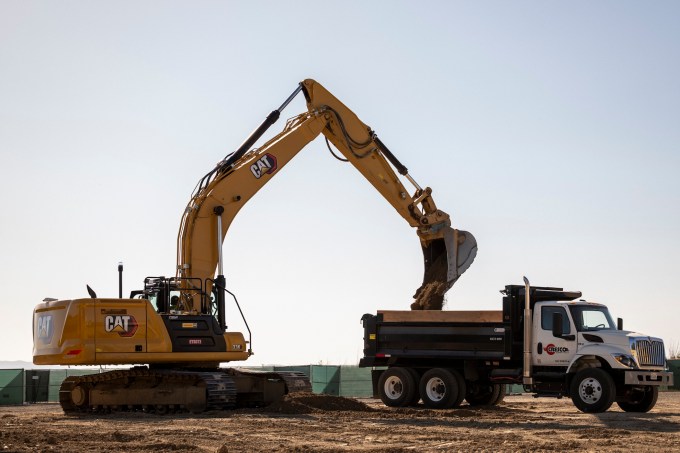As the automotive industry navigates a rapidly changing landscape, the convergence of tariffs, tax credits, and supply chain issues presents a formidable challenge for manufacturers. This article delves into the implications of these factors on electric vehicle (EV) makers and traditional automakers alike, shedding light on the evolving dynamics of the market.
Understanding the Current Landscape
In recent weeks, I explored several financial reports from various EV manufacturers to gauge their perspectives on the dual challenges posed by tariffs and the expiration of federal tax incentives. These reports, while often filled with complex legal jargon, reveal a clear concern among executives regarding the potential impact of these economic shifts.
Both emerging EV companies and established automakers have highlighted the ramifications of recent legislation aimed at altering tax credits for electric vehicle buyers. This legislation not only affects consumer incentives but also threatens to undermine the market for zero-emissions regulatory credits, which are crucial for many manufacturers.
Impact of Legislative Changes
In their financial disclosures, several companies have specifically referenced the new legislation in their risk assessments. The elimination of certain tax credits could significantly affect the profitability of electric vehicles, as noted by various manufacturers. For instance, one company has expressed concerns that disruptions among suppliers could hinder their ability to meet production and quality standards, further complicating their operational landscape.
Meanwhile, another manufacturer has adopted a more optimistic outlook, emphasizing the continued availability of tax credits for domestic battery production, which could provide some relief amidst these challenges.
The Tariff Dilemma
Legacy automakers are also voicing their concerns regarding the potential financial implications of tariffs. One major player has indicated that while they cannot precisely quantify the impact of the new legislation, it could have significant repercussions for the profitability of their electric vehicle offerings. This uncertainty adds another layer of complexity to an already challenging environment.
Moreover, the looming threat of a new import tariff on semiconductor chips could exacerbate the situation for automakers. The industry is still reeling from the chip shortages experienced during the pandemic, which severely disrupted production lines. With modern vehicles relying on thousands of chips, any additional tariffs could further strain supply chains and increase costs.
Future Considerations
As automakers grapple with these challenges, the question remains: how will they adapt to secure exemptions from the proposed tariffs? The current administration has indicated that exemptions will be granted to companies that manufacture chips domestically, which poses a dilemma for automakers who typically do not produce their own chips. This situation may compel them to seek partnerships with domestic suppliers, but the specifics of the tariff policy remain uncertain.
In conclusion, the automotive industry is facing a trifecta of challenges that could reshape its future. The interplay of tariffs, tax credit changes, and supply chain disruptions creates a landscape filled with uncertainty. As manufacturers strategize to navigate these hurdles, the outcome will significantly influence the trajectory of electric and traditional vehicles alike.

**Image Credits:** Bryce Durbin
Interestingly, despite the ongoing trade tensions and concerns over technology protectionism, there are indications that some companies from abroad, particularly those involved in autonomous vehicle technology, are considering establishing operations in the United States. This development could signal a shift in the industry as it adapts to the changing regulatory environment.
Stay tuned for more updates as we continue to monitor these developments and their implications for the automotive sector.

**Image Credits:** Bryce Durbin
In other news, the urban air mobility sector is witnessing significant changes as companies merge and expand their operations. A notable example is the acquisition of a helicopter ride-share business by an electric air-taxi developer, which aims to enhance its infrastructure and service offerings in key markets.
This merger not only provides the acquiring company with immediate access to established terminals in major cities but also positions it to capitalize on the growing demand for electric air travel. As the industry evolves, partnerships and acquisitions will play a crucial role in shaping the future of urban mobility.
Recent Developments in the Industry
Several noteworthy transactions have occurred recently, including a drone startup’s acquisition of a company specializing in autopilot systems, which highlights the increasing convergence of technology and transportation. Additionally, a component manufacturing firm has successfully raised funds to scale its operations, reflecting the ongoing investment in the aerospace supply chain.
Meanwhile, a food delivery and fintech startup has achieved unicorn status, showcasing the diverse opportunities within the tech landscape. These developments underscore the dynamic nature of the industry and the potential for innovation across various sectors.

**Image Credits:** Bryce Durbin
As the automotive landscape continues to evolve, companies are exploring new partnerships and strategies to remain competitive. For instance, a major ride-hailing service has formed a strategic alliance with a leading tech firm to introduce autonomous vehicles in European markets, signaling a commitment to innovation and growth.
Additionally, one electric vehicle manufacturer is pursuing legal avenues to enable direct sales to consumers, challenging existing regulations that may favor established competitors. This move reflects the ongoing shifts in the market as companies seek to adapt to changing consumer preferences and regulatory frameworks.
In summary, the automotive industry is at a crossroads, facing a multitude of challenges and opportunities. As manufacturers navigate this complex landscape, their ability to innovate and adapt will be crucial in determining their success in the years to come.

**Image Credits:** Bedrock Robotics
Lastly, a recent podcast episode featured a prominent figure in the autonomous vehicle sector, discussing the future of transportation and the exciting developments within their new startup. This conversation highlights the ongoing advancements in technology and the potential for transformative changes in the industry.
